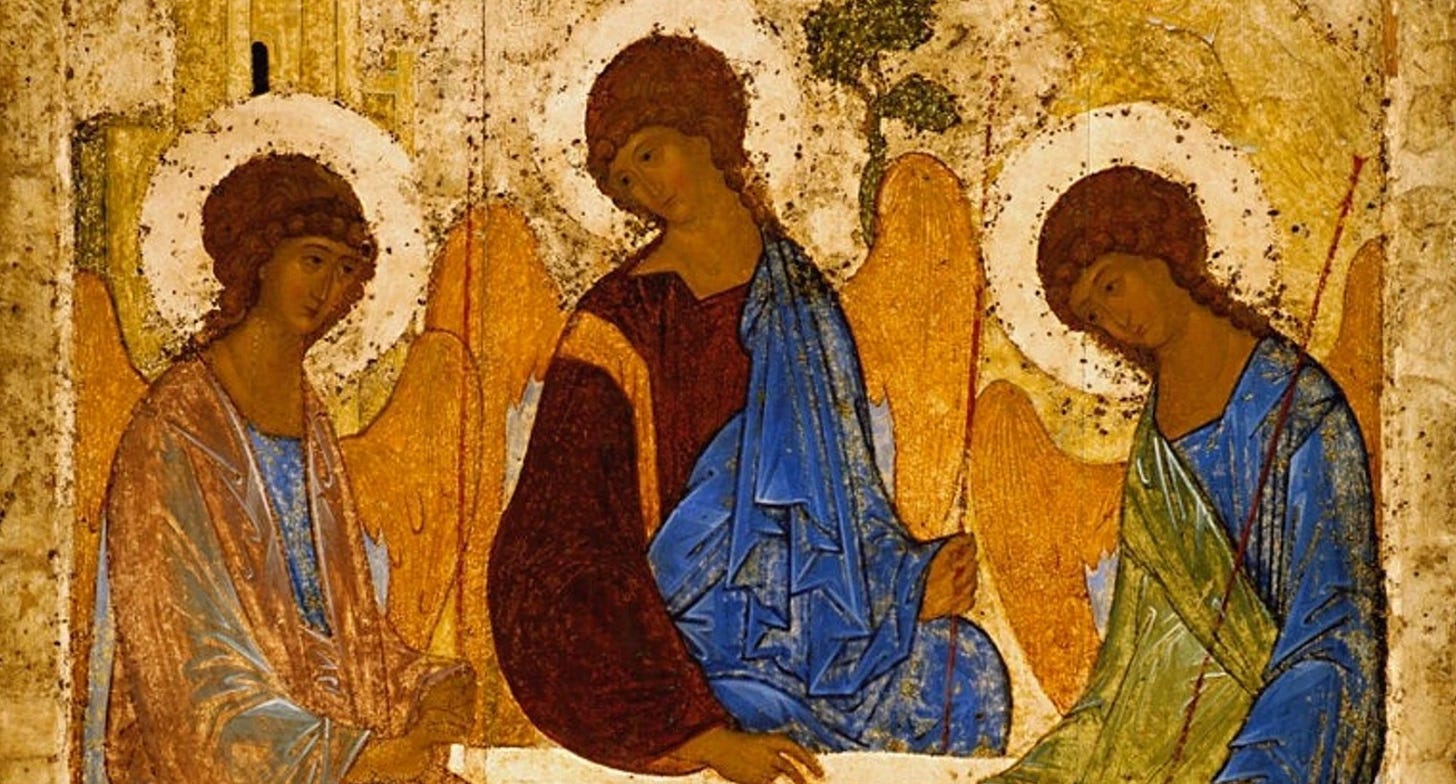Entertaining Angels in Sodom
Does Jude 1:7 suggest Sodom was destroyed because of homosexuality?
On social media, I often come across the argument that the story of Sodom was primarily about homosexuality. This is a common misconception, that has thankfully been cleared up in several decent study Bibles, such as the HarperCollins, New Oxford Annotated, or SBL. The point of the story of Sodom in Genesis 19 was about violent inhospitality toward strangers. We can see this by the juxtaposition of the hospitality of Abraham toward heavenly visitors in Genesis 18, and then Lot himself in Genesis 19. But Jude 1:7, at least according to modern translations, seems to indicate otherwise. Most translations try to modernize the language Jude is using, and end up insinuating it’s about “unnatural lust”, which appears to mean homosexuality to modern interpreters. This implication is incorrect.
Let’s take a look at the passage in context to get an idea what’s going on:
Now I desire to remind you, though you are fully informed, once and for all, that Jesus, who saved a people out of the land of Egypt, afterward destroyed those who did not believe. And the angels who did not keep their own position but deserted their proper dwelling, he has kept in eternal chains in deepest darkness for the judgment of the great day. Likewise, Sodom and Gomorrah and the surrounding cities, which, in the same manner as they, indulged in sexual immorality and pursued unnatural lust, serve as an example by undergoing a punishment of eternal fire. Yet in the same way these dreamers also defile the flesh, reject authority, and slander the glorious ones. — Jude 1:5-8 NRSVue
There’s two Greek phrases to notice here:
ekporneusasai: (indulged in sexual immorality) The emphasis here is on the extreme nature of the sex due to the ek prefix. This prefix means “out”, and similar to English, enhances the magnitude of word it’s prefixing. e.g. outdo, outgoing, outstanding.
sarkos heteras: (unnatural lust) The KJV gets this right when it translates it as “strange flesh”, but most others say simply “sexual immorality” (without the emphasis) and then either “unnatural lust” or “perversion”
As a refresher, the story of Sodom in Genesis 19 is about the attempted gang rape of two angelic visitors. Their visit was to determine whether Sodom should be saved or destroyed as a result of its pride, opulence, not aiding the poor or oppressed (Ezek 16:49-50). Lot harbors these visitors, while all the men, young and old, of Sodom come to try to “know” them. This was obviously not because they were just such good looking visitors that the men couldn’t resist, but their goal was to sexually humiliate them. We can see how they felt about foreigners in how they treat Lot. When Lot tries to stop them from taking the visitors, they become enraged.
But they replied, “Stand back!” And they said, “This fellow came here as an alien, and he would play the judge! Now we will deal worse with you than with them.”
—Genesis 19:9 NRSVue
In the context of the Sodom story, strange or different flesh seems to refer to the angels who, presented as foreigners. There’s a double meaning of both angelic flesh as well as foreign, or unknown flesh. If the author wanted to convey the homosexual nature of interaction, he would have simply used the word, andres (men) instead of sarkos heteras (strange flesh). That’s an odd choice that only exists here in the entire Bible, so we should pay attention.
We can see that the author was primarily thinking about the angels in the story of Sodom because all the surrounding verses also speak about angelic beings.
v6: Fallen angels and their punishment
v7: The story of Sodom features angelic visitors
v8: Dreamers are rejecting angelic beings (doxas)
v9: The archangel Michael referenced from the apocryphal myth, The Assumption of Moses
v10: Slandering of “whatever they do not understand” in reference to the previous verse slandering even a fallen angel.
If we go to the next verse, we see a reference to “Balaam’s error”, we can look back into Num 22:4-35…and oh look! Another angel reference. Balaam didn’t see an angel in his way while he was about to directly disobey God, so he beat his donkey, who talked back to him. It’s an odd story, but worth the read.
So what’s up with all these angel references here?
In second temple Judaism and early Christianity, they viewed angels as ministers of God. His agents who reported back to him to goings on of human affairs. (1 Cor. 11:10, Heb. 1:14,13:2) Therefore, giving angels respect as the agents of God was a big deal. The sins of the church Jude was pointing out had to do with denying Jesus as Lord, sexual immorality, (v4) gossip, complaining, greed, arrogance (v15-16) and taking advantage of the church’s hospitality (v12). In doing so they were disregarding angels’ authority and presence just like Balaam. (v8)
Whatever kind of sexual immorality specifically that was going on here is unclear, but if it was anything like Sodom, it had to do with taking advantage of outsiders, or the oppressed (perhaps even former slaves or sex workers in the church) and/or violent sexual advances. This passage has nothing to do with loving monogamous homosexual relationships.
To recap, Jude is talking about disregarding angels’ heavenly authority and he uses several stories about angelic beings from Jewish apocryphal myths and the Old Testament to do so. He is NOT talking about attraction or desire for the same sex, nor a loving same-sex relationship. If we are to determine how Christ wants us to understand issues around LGBTQ+ inclusion, we must use wisdom and the love of Christ as our lens, applied to our modern context. We cannot anachronistically assume a first century author thinks about homosexuality in the same way we do.


